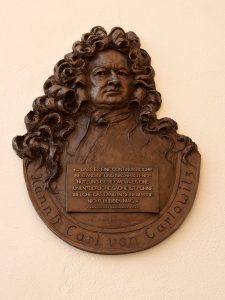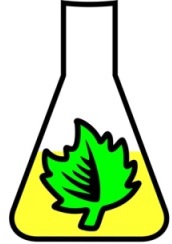Hans Carl von Carlowitz (1645-1714)

plaque in Freiberg, Germany
created by Bertrand Freiesleben
Hans Carl von Carlowitz, originally Hannß Carl von Carlowitz, was a German tax accountant and mining administrator. His book Sylvicultura oeconomica, oder haußwirthliche Nachricht und Naturmäßige Anweisung zur wilden Baum-Zucht (1713) was the first comprehensive treatise about forestry. He is considered to be the father of sustainable yield forestry. In his book, the German word nachhaltig, meaning sustainable, was used for the first time in literature.
For more information about Hans Carl von Carlowitz, see here.
The Regensburg Carl von Carlowitz Center:
At the Carl von Carlowitz Center (CCC), located in the department of chemistry and pharmacy, University of Regensburg, several scientists investigate the chemical use of non‐fossil, renewable resources. The CCC is a cooperative initiative of the faculties of chemistry and pharmacy, physics, biology, didactics. With strong collaborative inter‐disciplinary research activities, the CCC strives to address issues from fundamental research to industrial applications. Among others, we aim to develop methods and processes that allow the synthesis of fine chemicals from abundant non‐edible natural products, but also to contribute to the development of improved biofuels from plants. A third activity is the formulation of less toxic, highly biodegradable and bio-based sustainable products, especially in the fields of cosmetics and household cleaners.
One of the used key technologies to achieve these goals is catalysis, including metal‐, organo‐, bio‐ and photocatalysis, but new reaction media, bio-based solvents and solutions and greener techniques are equally important.
The toxicological evaluation of new compounds, efficiency analyses and the development of professional teaching concepts to implement sustainability issues in science curriculum complete the activities of the center.

Goals:
- To support the research members of the CCC network by facilitating research funding and research infrastructure.
- To serve as a bridge between fundamental and applied research in sustainable chemistry.
- To promote and disseminate knowledge in sustainable chemistry, especially in training master students and doctoral researchers at the Graduate school as well as conducting research seminars and symposia.
- To interconnect research topics in chemical ecology and sustainable chemistry.
